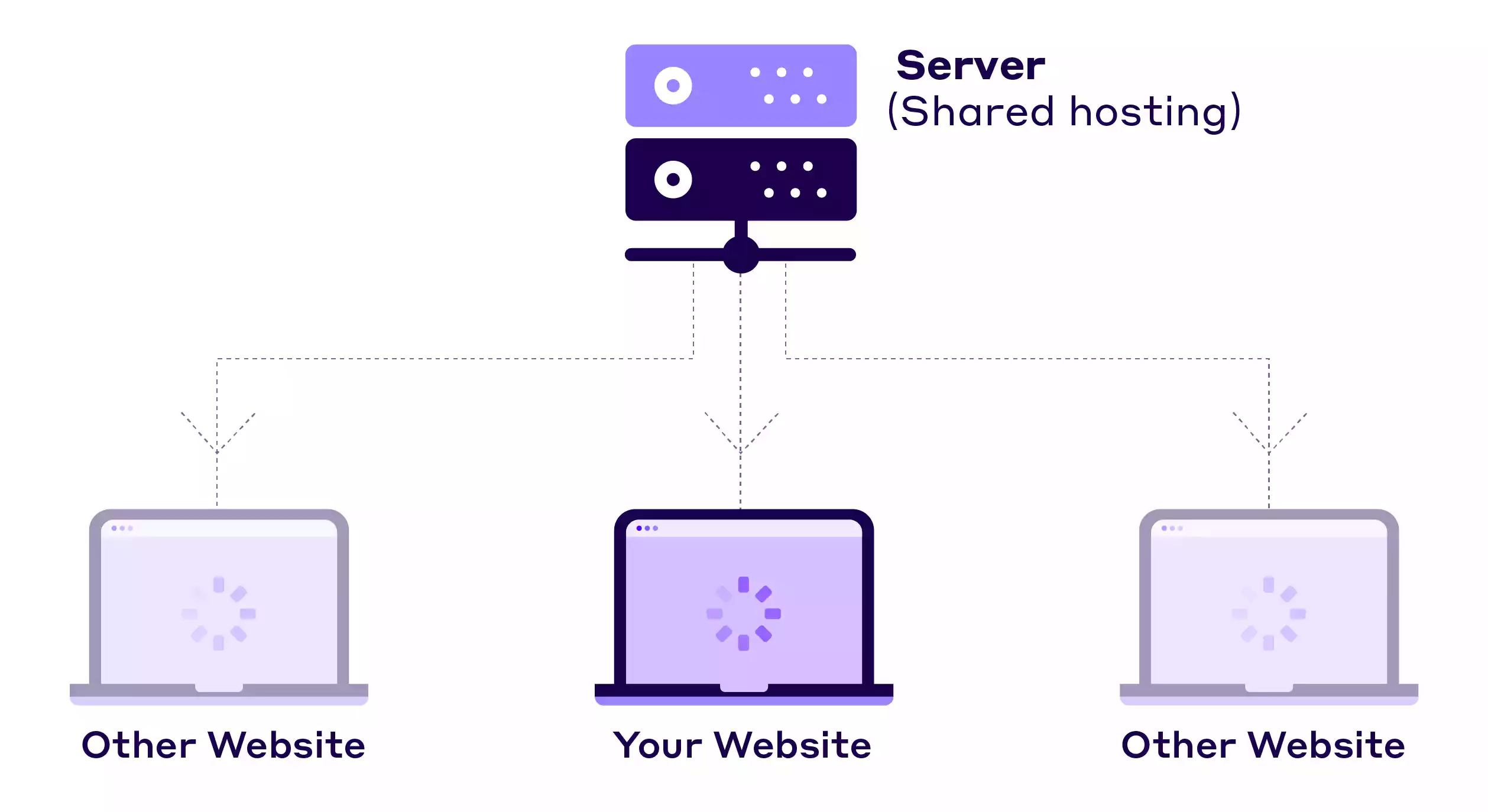Shared Hosting: The Basics and Its Impact
What is Shared Hosting?
Shared hosting is akin to living in an apartment complex. Multiple websites reside on a single server, sharing its resources such as CPU, RAM, and bandwidth. This type of hosting is often the most economical, making it a popular choice for small businesses and personal blogs.
Performance Implications of Shared Hosting
While shared hosting is cost-effective, it comes with certain drawbacks. The primary concern is the “noisy neighbor” effect, where one website’s high traffic can slow down others on the same server. This can lead to:
• Slower Load Times: Shared resources mean that if one site experiences a traffic spike, others may suffer from reduced performance.
• Limited Customization: Users have restricted access to server settings, limiting optimization capabilities.
• Security Risks: A vulnerability in one site can potentially affect others on the same server.
VPS Hosting: A Step Up
What is VPS Hosting?
Virtual Private Server (VPS) hosting offers a middle ground between shared and dedicated hosting. It involves partitioning a physical server into multiple virtual servers, each with its own dedicated resources.
Performance Benefits of VPS Hosting
VPS hosting provides better performance and more control compared to shared hosting. Key advantages include:
• Dedicated Resources: Each VPS has its own allocated resources, ensuring consistent performance.
• Scalability: Resources can be easily scaled up or down based on the website’s needs.
• Enhanced Security: Isolated environments reduce the risk of cross-site contamination.
Dedicated Hosting: The Premium Choice
What is Dedicated Hosting?
Dedicated hosting involves leasing an entire physical server exclusively for one website. This option is ideal for large businesses and high-traffic websites that require maximum performance and control.
Performance Advantages of Dedicated Hosting
Dedicated hosting offers unparalleled performance and customization options. Benefits include:
• Optimal Performance: Full access to server resources ensures the highest possible performance.
• Complete Control: Users have full control over server settings, allowing for extensive optimization.
• Enhanced Security: Exclusive use of the server reduces the risk of security breaches.
Cloud Hosting: The Modern Solution
What is Cloud Hosting?
Cloud hosting utilizes a network of virtual servers to host websites. Resources are distributed across multiple physical servers, providing high availability and redundancy.
Performance Benefits of Cloud Hosting
Cloud hosting offers several advantages over traditional hosting methods:
• Scalability: Resources can be dynamically allocated based on demand, ensuring consistent performance.
• Reliability: Redundancy across multiple servers minimizes downtime.
• Cost-Effectiveness: Pay-as-you-go pricing models allow for efficient resource utilization.
Managed Hosting: Hassle-Free Performance
What is Managed Hosting?
Managed hosting involves outsourcing the management of servers to a third-party provider. This includes maintenance, updates, and security, allowing website owners to focus on their core business.
Performance Benefits of Managed Hosting
Managed hosting offers several performance advantages:
• Expert Management: Professional management ensures optimal server performance and security.
• Time Savings: Outsourcing server management frees up time for other business activities.
• Enhanced Security: Regular updates and monitoring reduce the risk of security breaches.
Relevant Data Table For How Different Types of Hosting Affect Website Performance:
| Hosting Type | Performance | Scalability | Security | Cost |
|---|---|---|---|---|
| Shared Hosting | Low | Limited | Low | Low |
| VPS Hosting | Medium | High | Medium | Medium |
| Dedicated Hosting | High | High | High | High |
| Cloud Hosting | High | Very High | High | Variable |
| Managed Hosting | High | High | High | High |
FAQs:
What is the best hosting type for a small business?
For small businesses, VPS hosting is often the best choice. It offers a good balance between cost and performance, providing dedicated resources and better security compared to shared hosting. Additionally, VPS hosting is scalable, allowing businesses to upgrade resources as they grow.
How does cloud hosting ensure high availability?
Cloud hosting ensures high availability through redundancy. Resources are distributed across multiple physical servers, so if one server fails, another can take over. This minimizes downtime and ensures consistent performance. The pay-as-you-go pricing model also allows for efficient resource utilization, making it a cost-effective option.
Is dedicated hosting worth the cost for high-traffic websites?
Yes, dedicated hosting is worth the cost for high-traffic websites. It offers optimal performance, complete control over server settings, and enhanced security. The exclusive use of server resources ensures that high-traffic websites can handle large volumes of visitors without performance degradation.
Can managed hosting improve website security?
Managed hosting can significantly improve website security. Professional management includes regular updates, monitoring, and maintenance, reducing the risk of security breaches. Managed hosting providers often offer additional security features such as firewalls, malware scanning, and DDoS protection.
How does shared hosting affect website performance during traffic spikes?
Shared hosting can negatively affect website performance during traffic spikes. Since resources are shared among multiple websites, a traffic spike on one site can slow down others on the same server. This can lead to slower load times and reduced performance, making shared hosting less suitable for high-traffic websites.
Conclusion:
Understanding how different types of hosting affect website performance is crucial for making an informed decision. Each hosting type offers unique advantages and drawbacks, making it essential to choose the one that best fits your needs. Whether you opt for shared, VPS, dedicated, cloud, or managed hosting, knowing the performance implications can help you optimize your website for the best user experience.
What is the difference between Custom Youtube URLs and …
Posts References:
Evaluate the Five Critical Aspects in Web Hosting Performance
How Your Web Host Impacts Website Performance – Bluehost
